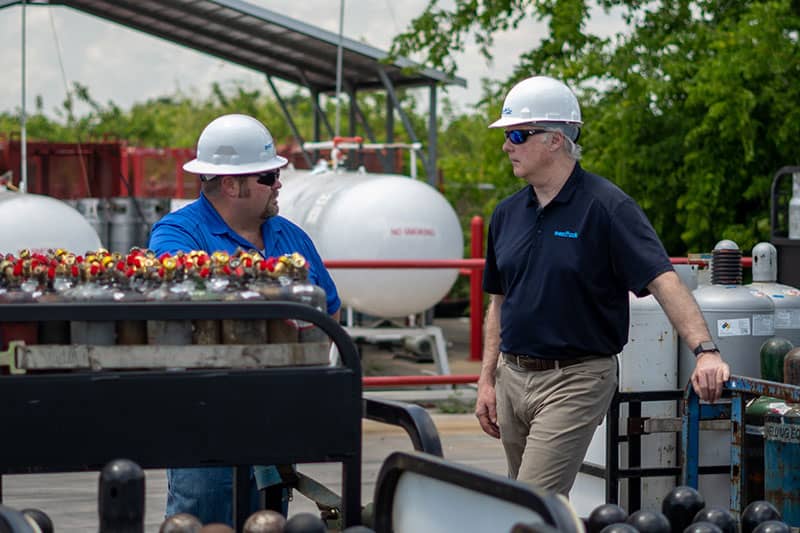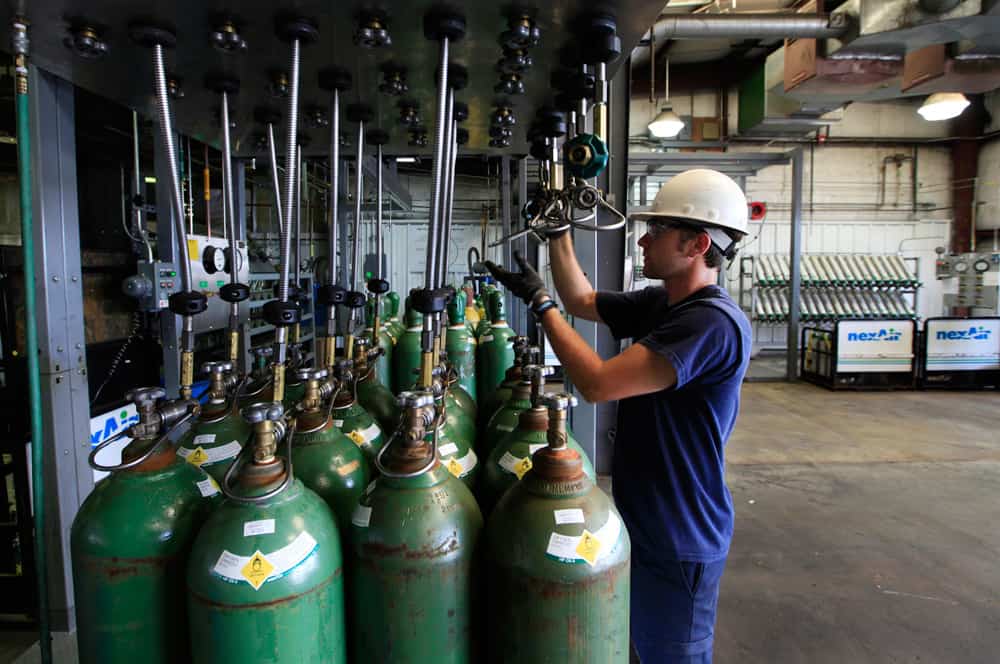Hydrogen and Specialty Gas Applications in Chemical Manufacturing
Chemical manufacturing relies on hydrogen in three distinct ways: as a reactant that becomes integral to the final product, as a reducing agent that strips away unwanted compounds, and as a processing aid that creates the right conditions for specific reactions. Each application demands careful attention to hydrogen purity, pressure, and flow control—factors that can make or break a chemical process.
Meanwhile, specialty gas mixtures are used in analytical and process control functions, where precise compositions measured in parts per million can determine success or failure. Unlike bulk gas supply, these applications require specialized expertise because even minor compositional variations can throw off measurement accuracy and compromise process outcomes.
Hydrogen as a Chemical Reactant
Take ammonia synthesis, where hydrogen combines with nitrogen using iron catalysts under intense pressure and temperature. Since the hydrogen actually becomes part of the ammonia molecule, this process devours massive quantities, with every molecule ending up in the final product.
Methanol production follows a similar pattern, reacting hydrogen with carbon monoxide to form methanol molecules. The chemistry here is unforgiving: too much hydrogen reduces yields, while too little creates incomplete reactions. That’s why plants monitor these ratios around the clock, constantly fine-tuning to optimize conversion efficiency.
Hydrogen for Chemical Processing
Hydrogenation reactions work by saturating organic compounds, adding hydrogen atoms across double bonds. You’ll find this process everywhere, from food manufacturers converting liquid oils into solid fats to pharmaceutical companies crafting specific molecular structures. Success depends on maintaining precisely controlled conditions to achieve the desired product characteristics.
In refineries, hydrotreating serves a different but equally important function: stripping sulfur, nitrogen, and oxygen compounds from petroleum products under high pressure. This process helps refineries meet fuel specifications while preparing feedstocks for downstream processing. Hydrogen consumption varies dramatically depending on the feedstock’s sulfur content and the stringency of product specifications.
Specialty Gas Applications
Analytical laboratories depend on calibration gas mixtures with certified compositions to keep their instruments accurate. Gas chromatographs, for instance, need ultra-pure carrier gases and reference standards with precisely known concentrations. While these applications use relatively small volumes, they demand exceptional precision and thorough documentation.
Process monitoring systems present their own challenges, requiring specialty gas blends to calibrate emissions monitors, safety detectors, and quality control instruments. Environmental compliance hinges on certified reference gases that trace back to national standards, while safety systems need calibration gases that exactly match the compounds they’re designed to monitor.
The Purity Challenge
Catalyst systems are notoriously finicky about impurities, which can poison active sites and devastate performance. Sulfur compounds, carbon monoxide, and moisture are particularly troublesome, capable of deactivating catalysts so quickly that expensive replacements become necessary. That’s why ultra-high purity hydrogen (containing less than 1 ppm total impurities) has become essential for protecting sensitive catalysts.
Analytical applications often push purity requirements even further, demanding gases with moisture levels below 1 ppm. Even trace amounts of water can interfere with measurements or damage delicate instruments. Specialty gas suppliers have responded by developing sophisticated storage and handling systems that preserve these exacting purity levels throughout distribution.
Moving Forward
At nexAir, our technical specialists bring expert KnowHow™ to these complex purity requirements and analytical applications. Our specialty gas laboratory creates certified mixtures while maintaining extensive inventory of high-purity gases that support reliable process control.
Chemical plants that master these gas management fundamentals Forge Forward with improved analytical accuracy and enhanced process reliability. Ready to explore how specialty gas solutions could benefit your operations? Contact nexAir to discuss high-purity gases and certified calibration mixtures tailored to your analytical and process monitoring needs.
Looking out for your future
Get your career going on the right track with nexAir
Find out how nexAir KnowHow has impacted businesses all over the Southeast
Our expertise makes us more than a valuable partner, it makes us headlines
Don't see what you're looking for?
Everything we offer is a click away and it will arrive before you know it.


